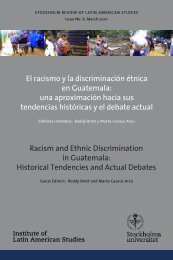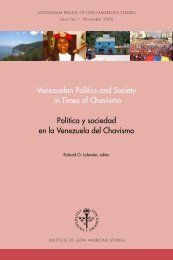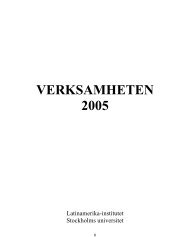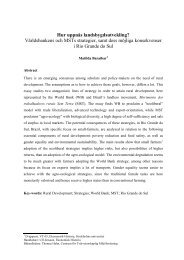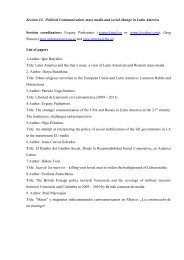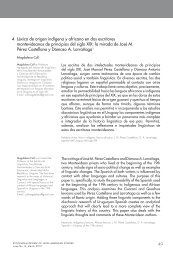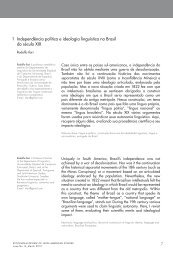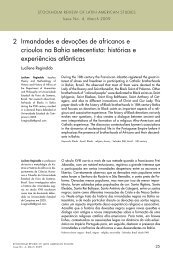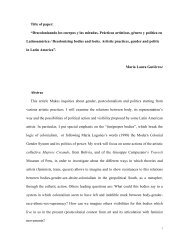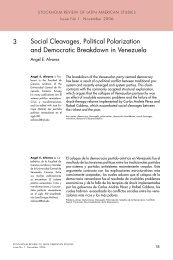Papers - Conference 2009 - Institute of Latin American Studies
Papers - Conference 2009 - Institute of Latin American Studies
Papers - Conference 2009 - Institute of Latin American Studies
Create successful ePaper yourself
Turn your PDF publications into a flip-book with our unique Google optimized e-Paper software.
Juxtaposing concepts over social globalization and post colonialism with Brazilian aspectsregarding media consumption and digital exclusion one would say that global village idea is farto be a reality in contemporary Brazilian society. Most <strong>of</strong> the characteristics that can beconsidered an index <strong>of</strong> a rather globalized society- degree <strong>of</strong> English speakers, Internet users,foreign media consumption and interpersonal exchange- are exclusive <strong>of</strong> a Brazilian minoritythat has the largest share <strong>of</strong> capital in the country. Broaden this capitalist aspect to a globalscenario - in a world where the economies <strong>of</strong> the nations are truly globalized- the aforementionedfeatures <strong>of</strong> the so-called global society can be found in the western wealthy countries- in NorthAmerica and Western Europe - in a more egalitarian way. Brazil, as an underdevelopmentcountry with large social differences, can thus be somewhat seen as significant case <strong>of</strong> study oversocial globalization structures and driven forces.Brazilian history, alike in many other countries, started to be told with the arrival <strong>of</strong> what iscalled “western civilization”. Since then, people from the land are becoming more and morewesternized by having in western civilization the only model to be followed as the elite <strong>of</strong> thecountry- the ones that detain the power to rule- are and have always being European. So isplausible to say that Brazilian elites have always followed the footsteps <strong>of</strong> the most developedcountries in Europe, while being somewhat chased by Brazilian population.Therefore, by its classist and hierarchical characteristic, the ones that are already consideredmembers <strong>of</strong> the elite try to stay where they are, while others struggle for a better position in thesocial pyramid. Such differentiation that is intended to be made between Us, -the members <strong>of</strong> thedeveloped society, the ones to be followed- and Them – the ones that follow- is not exactlylinked to wealth, but is more precisely present in the signs <strong>of</strong> one‟s wealth, in how closer oneseems to be from the global elite. This cyclic pursue for exclusiveness, based on how one seemsto be, brings the idea <strong>of</strong> a club as “the exterritoriality <strong>of</strong> elites is assured in the most materialfashion- their physical inaccessibility to anyone not issued with an entry permit” (Bauman: 21,1998).Moreover, media plays a central role in the creation <strong>of</strong> such social layers, or clubs, both as alifestyle advertiser and a source <strong>of</strong> western cultural productions through the dissimilarity <strong>of</strong> thecontent that is <strong>of</strong>fer in Brazil in different types <strong>of</strong> media. The national orientation <strong>of</strong> terrestrialtelevision contrasting with the, mostly north-<strong>American</strong>, schedule in paid television reinforces17



